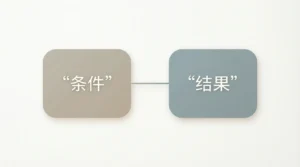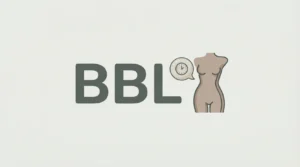In the workplace, people sometimes say, “You’re too emotional for this job.“
This can feel like a challenge or even an insult.
At such moments, staying calm and having a sharp comeback ready is powerful.
In this article, we’ve gathered the best comebacks that not only make your point but also leave the other person thinking twice.
🔥 Trending Comebacks to “You’re Too Emotional for This Job”

- “My emotions drive my dedication.”
- “Passion is the fuel for excellence.”
- “Caring deeply leads to impactful results.”
- “Empathy enhances team collaboration.”
- “Emotions are the heartbeat of innovation.”
- “Feeling deeply ensures quality work.”
- “My sensitivity is my superpower.”
- “Emotional intelligence fosters better decisions.”
- “I channel my emotions into productivity.”
- “Being in touch with feelings promotes growth.”
🤔 Questioning the Criticism

- “Can you provide specific examples?”
- “What makes you say that?”
- “How do you define ‘too emotional’?”
- “Is this about my performance or my feelings?”
- “Are emotions not allowed in this role?”
- “Do you believe emotions hinder productivity?”
- “Why is emotional investment seen as a weakness?”
- “Can passion be detrimental to success?”
- “Is empathy a liability here?”
- “Do you equate emotions with incompetence?”
🎯 Focusing on Results

- “My performance speaks for itself.”
- “Emotions have led to successful outcomes.”
- “The numbers reflect my dedication.”
- “Results are driven by passion.”
- “Emotional investment yields high-quality work.”
- “My commitment is evident in my achievements.”
- “Emotions fuel my drive for excellence.”
- “Success is a product of dedication.”
- “Passion is the cornerstone of my work.”
- “I let my work demonstrate my commitment.”
😄 Using Humor to Deflect
- “I wear my heart on my sleeve.”
- “Emotions are my secret weapon.”
- “I’m just emotionally invested in success.”
- “My feelings are part of my charm.”
- “I bring passion to the table.”
- “Emotions make work more interesting.”
- “I’m emotionally attached to excellence.”
- “Feelings make me fabulous.”
- “I add a personal touch to professionalism.”
- “Emotions make the workplace vibrant.”
🧠 Responding with Logic

- “Emotions enhance problem-solving skills.”
- “Empathy leads to better team dynamics.”
- “Emotional awareness improves leadership.”
- “Feelings contribute to creative solutions.”
- “Emotional intelligence is a workplace asset.”
- “Passion drives continuous improvement.”
- “Emotions are integral to human-centered design.”
- “Empathy fosters customer satisfaction.”
- “Emotional insight leads to innovation.”
- “Feelings are part of effective communication.”
🧘 Staying Calm Under Pressure

- “I manage emotions to maintain focus.”
- “Composure is key to problem-solving.”
- “Emotional control enhances decision-making.”
- “I channel emotions into productivity.”
- “Staying calm ensures effective leadership.”
- “Emotions are managed for optimal performance.”
- “I balance feelings with professionalism.”
- “Emotional regulation is a strength.”
- “I use emotions to drive success.”
- “Calmness under pressure is my forte.”
💬 Engaging in Constructive Dialogue

- “Let’s discuss how emotions impact work.”
- “I’m open to feedback on emotional expression.”
- “How can we balance emotions and professionalism?”
- “Let’s explore the role of emotions in our work.”
- “I’m interested in understanding your perspective.”
- “Can we find common ground on emotional expression?”
- “Let’s have a conversation about emotional intelligence.”
- “I’m eager to learn how to manage emotions effectively.”
- “Let’s work together to create an emotionally intelligent workplace.”
- “I’m committed to improving emotional awareness.”
Conclusion
Being told you’re “too emotional for this job” doesn’t have to be a setback.
Instead, it can be an opportunity to showcase the value of emotional intelligence in the workplace.
Whether you choose to respond with humor, logic, or assertiveness, remember that your emotions are a strength, not a weakness.
Embracing and expressing your feelings can lead to better communication, stronger relationships, and greater success in your career.

John Michael is the creative mind behind replyresponses.com, sharing witty, smart, and relatable responses for every situation — helping people text confidently, laugh often, and connect better every day.












